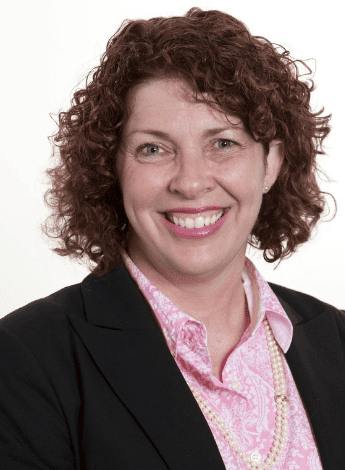
Passion, innovation and passing the torch

Portability, retention and optimisation of a quality global workforce are key to the future of physiotherapy, says Dr Melissa Locke. The paediatric specialist talks to Marina Williams ahead of the Queensland Professional Excellence Awards.
Specialist Paediatric Physiotherapist (as awarded by the Australian College of Physiotherapists in 2008) Dr Melissa Locke FACP describes her near-40-year career as nothing short of extraordinary.
Physiotherapy, Melissa says, has taken her far beyond her initial expectations as a young student.
It’s enabled her to traverse many diverse paths, from being the first paediatric clinical specialist to be awarded Fellowship of the Australian College of Physiotherapists via clinical specialisation (Melissa is one of five paediatric physiotherapy Fellows in Australia) to serving as president and Board chair of the APA and vice president of World Physiotherapy.
‘I didn’t know that World Physiotherapy existed or what its purpose was when I started as a physio.
'I never, in my wildest dreams, imagined some of those achievements,’ muses the University of Queensland graduate of 1985.
‘I am constantly amazed at where physiotherapy has taken me and how many jobs it’s given me, how many friends and valued colleagues, and how it can continue to offer the same to the next generation.’
Melissa has forged a respected career in children’s health and disability and will share thoughts on her profession at the Queensland Professional Excellence Awards and Dinner in November.
Her keynote presentation is titled ‘Where to from here? My perspective on physiotherapy in the next five years’.
‘Physiotherapy remains a profession that’s held in high regard,’ she says.
‘If you asked me what we need to make sure we hold on to over the next five to 10 years so that we’re still regarded highly, I would say it’s essential that we don’t lose sight of our unique value proposition in health.

Dr Melissa Locke
'We must hold true to our values of patient-centred care, evidence- based practice, being experts in exercise prescription and adaptation, and being hands on, as appropriate.’
Awarded Honoured (lifetime) Membership of the APA in 2017, Melissa is equally respected in the international community.
She was a member of the World Physiotherapy Asia Western Pacific executive from 2014 to 2015, board director of World Physiotherapy in 2015 and vice president in 2019, retiring from the board in June 2023.
Her path to physiotherapy was not straightforward.
As a young student, her sights were set on becoming a teacher, following in the footsteps of her mother.
A chance encounter with a paediatric physiotherapist sparked her interest in the field.
‘I saw this opportunity for education and health to come together and I was just sold,’ she recalls.
That fateful decision has led Melissa on ‘an extraordinary journey’, one that has seen her excel as a clinician, educator, business owner (Movement Solutions has been operating in Brisbane since 1994) and leader within the profession.
Throughout it all, the driving force has been her deep passion for making a difference in the lives of her patients, particularly those in the paediatric and disability sectors.
‘Seeing someone achieve a skill like walking—the absolute joy when that happens for a family and for the individual—or lifting their head to smile at a parent or being able to move their hand to communicate or perform an independent action or activity is so rewarding.
'I always say, once I no longer get the song in my heart treating patients, I’ll go off and do another job—become a house flipper or a flower farmer,’ Melissa says with a smile.
Until then, there is plenty more to do.
She will continue to advocate for and promote the physiotherapy profession to ensure that it maintains its strong reputation and high standards.
In her role as chair of the Australian Physiotherapy Council, Melissa champions excellence and professionalism in physiotherapy practice.
She is passionate about driving the accrediting authority’s strategic goal of prioritising a safe and culturally aware future Australian workforce to serve the community.
‘Physiotherapists of the future will need to collaborate interprofessionally and practise with cultural capability and care.
'We need to continue to push to work to the absolute edge of scope of practice, with appropriate remuneration to ensure an engaged and active workforce.
‘Despite Medicare still limiting rebates on referrals for imaging, we see radiology practices accepting direct referrals from physiotherapists.
'It shows they trust us; they see us as a trustworthy profession,’ Melissa explains.
‘We need to continue to fight the good fight and demonstrate our cost-effectiveness in the health and wellness space.
'Just as pharmacists have reduced the load on GP practices, we can reduce the workload of GPs.
'I support the APA’s continued advocacy in this area.’
At the same time, she is concerned that the profession can sometimes be overly quick to abandon valuable hands-on skills when research supports a hands-off approach for specific areas of care.
‘I’ve seen many really good physios say they’ve given up the profession because they feel that the skills they learnt as a practitioner are no longer seen as best practice.
But the evidence for touch is very strong… it is often the interaction that makes a difference to patient outcomes.’
Looking to the future, Melissa sees both opportunities and challenges for the physiotherapy profession.
She is excited about the uptake of telehealth and remote interventions to expand access to care, particularly in rural and remote areas.
‘There is a musculoskeletal specialist in central Queensland whose practice sees many paediatric patients.
'There are few experienced paediatric physios there.
'At least once a week, perhaps more, I am on a telehealth call with that physio to teach, guide, mentor and educate the family while supporting the physiotherapist.
'Then they go on and complete treatment for the next month and I telehealth them again.
'When I started in this profession, who would have thought that would be possible?’
One area of particular concern for Melissa is the impact of government funding models such as the National Disability Insurance Scheme on the profession.
She believes that National Disability Insurance Scheme ‘price-fixing’ is threatening the viability of small private practices and risking the loss of experienced physiotherapists due to burnout and inadequate remuneration.
‘Price limits, rather than a price guide, make it very hard for small businesses to charge at a rate commensurate with experience and, therefore, pay staff for their experience.
'It would be a real shame to see the death of the small private practice because of a flawed government funding model.’
Melissa is a strong believer in the power of continuing education and professional development and she encourages physiotherapists, especially new graduates, to seek out opportunities to learn from colleagues here and abroad.
‘There’s been a slow uptake of specialisation in paediatrics but the College process for me was life-changing.
'I encourage others to pursue it.
'Become a Fellow and become a clinical specialist.
'I’m sure you’ll have quite an extraordinary career.’
The Queensland Professional Excellence Awards and Dinner will be held on Thursday 14 November, 6.30–9.30 pm, in Herston, Queensland. Click here for more information and to book.
© Copyright 2024 by Australian Physiotherapy Association. All rights reserved.





